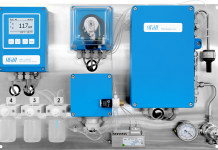A challenging and busy year for manufacturers and importers in the EU as well as non-EU companies who are working hard to comply with REACH Regulation through their Only Representatives (OR).
There is an advantage that should not be missed for substances imported into the EU market on its own or in a preparation for the first time. Provided the conditions are met, companies have the opportunity to late pre-register a substance until 31 May 2017 and benefit from the transitional period for the last registration deadline, 31 May 2018. Otherwise, companies will face the ECHA Inquiry challenge. Starting from June, there is no choice to late pre-register or register directly to ECHA without holding a pre-registration. Article 26 of REACH Regulation applies and Inquiry is the only way to registration, if substance has no pre-registration number. Inquiry is a time consuming process as it may take more than one dossier submission to ECHA depending on the quality of the dossier especially for complex UVCB substances and proof of SIEF substance sameness is an important issue during inquiry.
The chemical industry faced the outcome of the first deadline of REACH in 1 December 2008 when all substances in the EU market had to be “pre-registered” unless exempt from the obligation to register. 1 June 2018 will be the day when all substances in the EU market must be “registered” and fully compliant with REACH Regulation. Supply Chain Management becomes more and more important to prove compliance. Especially, when indirect export of chemicals into the EU is involved in complex supply chains, EU importers should be more demanding and make sure that it is crystal clear who in the supply chain of the substance manufactures outside the EU and who has appointed the OR. EU importers should keep the relevant documentation on volume and use coverage of the OR’s registration to be able to prove to Authorities compliance. Otherwise, importer is subject to registration obligations. Professional OR companies act according to Article 8 and the complementary principles given in the ORO Best Practice Guide published by Only Representative Organization (ORO). ORO, constantly in co-operation and collaboration with ECHA, is an ECHA stakeholder and has more than 30 professional members who act as ORs. RGS is a member of ORO since the establishment in 2008.
Moving into the next decade, global chemicals management will also continue to be challenging with new regulations in force and on the way. Korea and China are already implementing their own chemicals regulations with the inspiration of EU REACH. Meanwhile, Turkish REACH abbreviated as KKDIK has been postponed as a result of elections, political ups and downs and finally will be published in 2017 according to the information provided by the Ministry of Environment and Urbanization (MOEU). Although KKDIK is basically a translation of the EU REACH Regulation and an output of an EU Implementation Project for the purpose of aligning Turkish chemicals regulatory management to that of the European Union (EU), MOEU has a different approach for deadlines compared to EU. The substances manufactured in Turkey or imported into the Turkish market will soon be all pre-registered. However, no tonnage bands will be declared during pre-registration and classification or volumes of the substances will not trigger the registration deadline in contrast to the EU REACH. There will be a pre-registration phase followed by registration period starting from the end of 2019 till the end of 2022 for all substances according to the current Draft KKDIK Regulation. The deadlines are still subject to change as MOEU has recently requested the stakeholders’ and Turkish Chemicals manufacturers’ opinion on the final Draft and working on these opinions which may lead to some minor changes in the Draft before regulation is published.
The final KKDIK Draft has additional information added to some Annexes as well. It was already known that Chemical Safety Report will be prepared, signed by Certified Risk Assessor in Turkey. According to the final KKDIK Draft Annex XIIX , the requirements and procedures for qualifying to apply for a certificate and getting authorised as a certified body are finally defined. The candidates will need to complete a minimum of 64 hours of training and succeed in a proficiency exam to qualify for the Chemical Safety Assessor Certificate. Although the names of the certifying bodies are not specified yet, several details about the exam as well as criteria for and qualifications of the candidates and the trainers are clearly stated in this Annex. However, the OR role and definition (Article 9) in the regulation is still insufficient and RGS recommends manufacturers to take a judicious decision when assigning their Turkish OR.
Please contact RGS if you are not compliant with Turkish Chemicals Laws or need more details on our services and the status of your substances.
Dr.Yaprak Yüzak Küçükvar, RGS Turkey Branch Manager
www.reach-gs.eu














